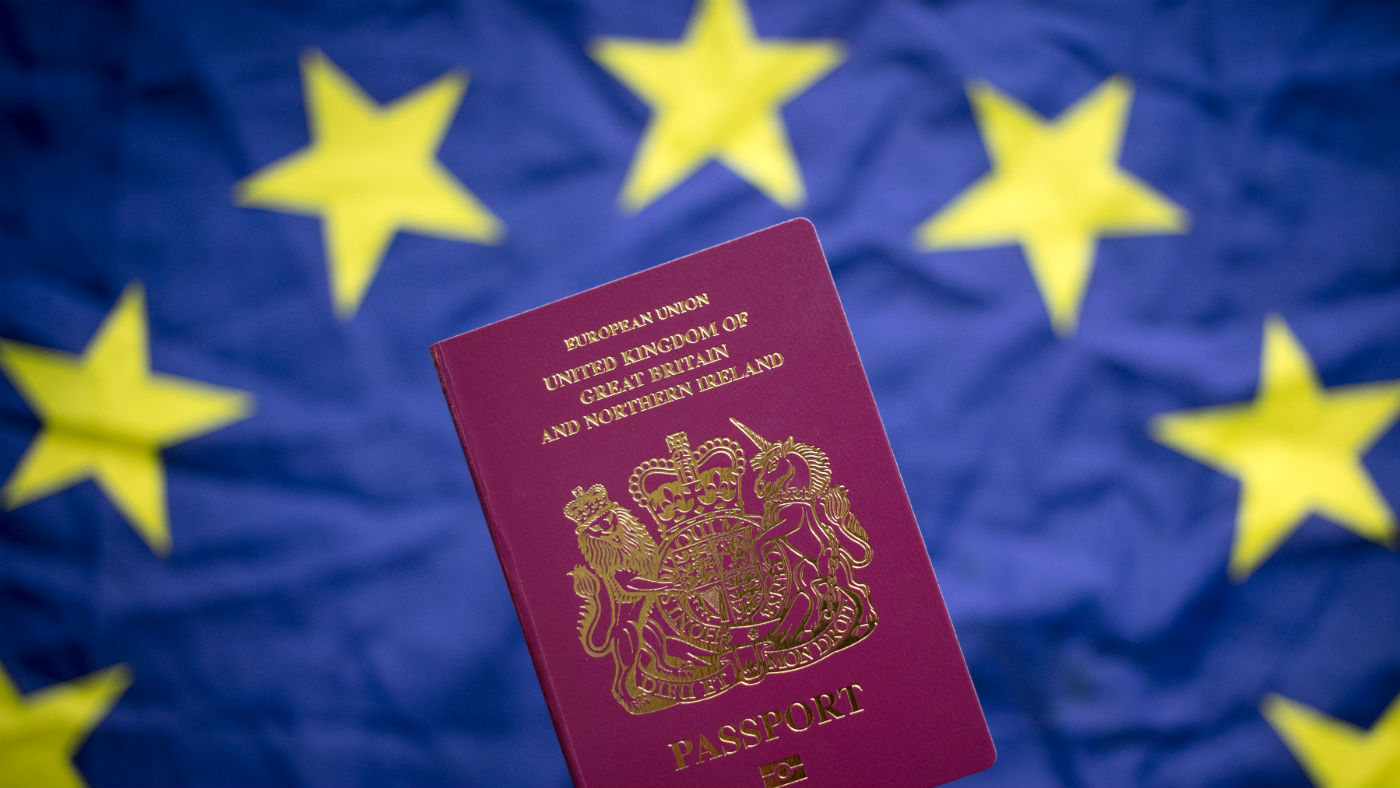EU urges crackdown on ‘golden passports’ for big investors
Citizenship-for-sale scheme open to abuse for money laundering and tax evasions, warns European Commission

A free daily email with the biggest news stories of the day – and the best features from TheWeek.com
You are now subscribed
Your newsletter sign-up was successful
The European Commission has urged a crackdown on member states handing out “golden passports” and visas to non-EU nationals in exchange for large investments.
The Commission has pledged closer monitoring of such schemes which it claims help organised crime groups infiltrate the bloc and can be used for money-laundering and tax evasion.
Twenty EU countries, including the UK, offer either a golden passport or visa system, which gives individuals free movement across the 28-member bloc, access to the single market and other rights.
The Week
Escape your echo chamber. Get the facts behind the news, plus analysis from multiple perspectives.

Sign up for The Week's Free Newsletters
From our morning news briefing to a weekly Good News Newsletter, get the best of The Week delivered directly to your inbox.
From our morning news briefing to a weekly Good News Newsletter, get the best of The Week delivered directly to your inbox.
The warning is contained in the EU Commission’s first report on the multi-billion-dollar industry of so-called “investment migration”, which critics have claimed effectively amounts to a money-for-citizenship scam.
“Although legal, these schemes are sometimes run in opaque ways and without sufficient checks on those who acquire passports and visas,” reports Reuters.
Of greatest concern are Malta, Cyprus and Bulgaria, which this week announced it was halting its passport-selling programme. They are the only EU countries that sell citizenship to non-EU nationals – for investments of between €1m and €2m.
While golden visas are more common, they are no less controversial. Minimum investment thresholds range from €15,000 in Croatia to over €5m in Luxembourg and Slovakia.
A free daily email with the biggest news stories of the day – and the best features from TheWeek.com
A report last year by anti-corruption group Transparency International concluded that “such programmes are big business” and “around €25bn in foreign direct investment has flowed into the EU through these schemes over the past 10 years”.
The BBC's Adam Fleming reports that another anti-corruption campaign group Global Witness, which conducted a two year investigation into golden visa abuse, has accused the EU of raising the alarm but failing to offer solutions.
In December, the UK government announced it would be suspending its £2m top-tier investor visa scheme.
Around 1,000 applications for Tier 1 investor visas were granted last year, with the majority historically going to Russian and Chinese investors.
However, the BBC reported that after the 7 December cut-off date set by ministers, the scheme was, in fact, “not currently suspended”.
The Home Office has since said that, from this year, independent, regulated auditors will assess applicants’ financial and business interests and check they have had control of the funds for at least two years.
-
 The 8 best TV shows of the 1960s
The 8 best TV shows of the 1960sThe standout shows of this decade take viewers from outer space to the Wild West
-
 Microdramas are booming
Microdramas are boomingUnder the radar Scroll to watch a whole movie
-
 The Olympic timekeepers keeping the Games on track
The Olympic timekeepers keeping the Games on trackUnder the Radar Swiss watchmaking giant Omega has been at the finish line of every Olympic Games for nearly 100 years
-
 Switzerland could vote to cap its population
Switzerland could vote to cap its populationUnder the Radar Swiss People’s Party proposes referendum on radical anti-immigration measure to limit residents to 10 million
-
 Epstein files topple law CEO, roil UK government
Epstein files topple law CEO, roil UK governmentSpeed Read Peter Mandelson, Britain’s former ambassador to the US, is caught up in the scandal
-
 Iran and US prepare to meet after skirmishes
Iran and US prepare to meet after skirmishesSpeed Read The incident comes amid heightened tensions in the Middle East
-
 Israel retrieves final hostage’s body from Gaza
Israel retrieves final hostage’s body from GazaSpeed Read The 24-year-old police officer was killed during the initial Hamas attack
-
 China’s Xi targets top general in growing purge
China’s Xi targets top general in growing purgeSpeed Read Zhang Youxia is being investigated over ‘grave violations’ of the law
-
 Panama and Canada are negotiating over a crucial copper mine
Panama and Canada are negotiating over a crucial copper mineIn the Spotlight Panama is set to make a final decision on the mine this summer
-
 Why Greenland’s natural resources are nearly impossible to mine
Why Greenland’s natural resources are nearly impossible to mineThe Explainer The country’s natural landscape makes the task extremely difficult
-
 Iran cuts internet as protests escalate
Iran cuts internet as protests escalateSpeed Reada Government buildings across the country have been set on fire